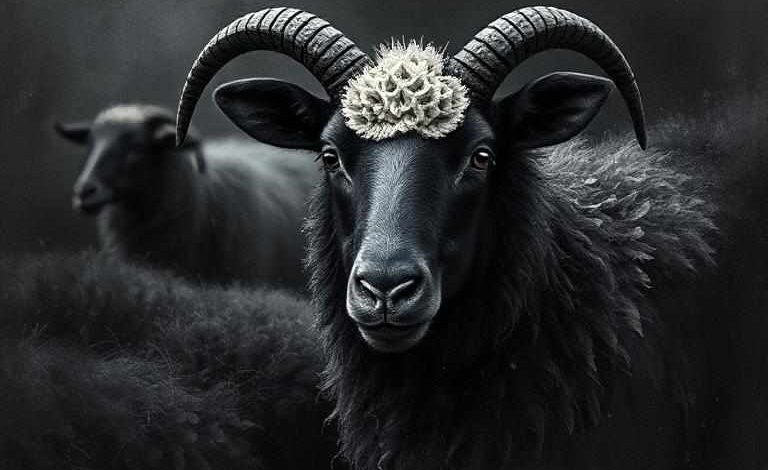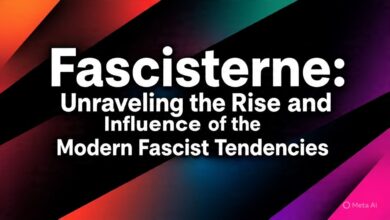Black Sheep Black: Unraveling the Myths and Realities

When we hear the phrase “black sheep,” many of us immediately think of someone who’s different—perhaps even troublemaking—in a family or community. But what happens when we focus specifically on “blacksheep black,” a term that seems to blend symbolism, identity, and societal perceptions? In this article, we’ll explore the layers behind this intriguing phrase, uncover its deeper meaning, and understand why it resonates so strongly in today’s cultural landscape.
Whether you’re curious about the origins of the term, its psychological implications, or its role in modern storytelling, this comprehensive guide aims to shed light on all aspects of “blacksheep black.” So, let’s dive in.
The Origins and Symbolism of “Black Sheep Black”
From Literal to Figurative: Tracing the Roots
The phrase “black sheep” has been around for centuries, with roots dating back to old European pastoral societies where sheep with black wool were considered less desirable than their white counterparts. The white wool was easier to dye and sell, making white sheep more valuable—thus, the “blacksheep” became a metaphor for someone who doesn’t quite fit in.
Over time, “blacksheep” evolved into a symbolic term used to describe individuals who diverge from societal norms—whether through behavior, beliefs, or choices. The phrase gained popularity in literature and common speech, often carrying a hint of judgment or disapproval.
“Blacksheep black” amplifies this symbolism, emphasizing the darkness of the “sheep”—perhaps signifying rebellion, uniqueness, or societal rejection. It’s as if the phrase layers a second “black” onto the original, reinforcing the idea of being deeply different or even misunderstood.
Cultural Significance and Variations
Different cultures interpret the symbolism of black sheep differently. In Western societies, blacksheep are often viewed negatively, associated with shame or failure. Conversely, some cultures see the blacksheep as a symbol of mystery, independence, or non-conformity.
In recent years, however, there’s been a shift toward embracing individuality, transforming the “black sheep” into a badge of honor. The phrase “blacksheep black” can reflect this evolution—acknowledging someone’s unique identity while challenging traditional notions of acceptance or belonging.
Examples in Literature and Pop Culture
From Shakespeare’s “The Merchant of Venice” to modern movies like Black Sheep (2018), the theme of the outlier or rebel has remained compelling. In music, artists like Billie Eilish or Kendrick Lamar have embraced their “blacksheep” status, turning societal rejection into empowerment.
The phrase “blacksheep black” appears in poetry, art, and even branding, symbolizing depth, mystery, and resilience. It invites us to question whether being the outsider is inherently negative or a sign of strength.
Psychological Insights: What Being the “Black Sheep” Means
Identity and Self-Perception
Being labeled as a “black sheep” can significantly impact one’s self-esteem and identity. Many individuals internalize this label, feeling alienated or misunderstood. However, emerging psychological research suggests that embracing one’s differences can foster resilience and authenticity.
The concept of “positive deviance” highlights that those who don’t conform can often find innovative solutions and foster change. Think of entrepreneurs or activists who challenge norms—often viewed as “blacksheep”—but who ultimately drive societal progress.
Societal Reactions and Self-Image
Society tends to react negatively to outsiders, sometimes marginalizing or ostracizing them. But this reaction isn’t universal. In some communities, being the “black sheep” aligns with charisma or leadership—think of figures like Rosa Parks or Malcolm X, who defied expectations and became catalysts for change.
Individuals who see themselves as “blacksheep black” often grapple with feelings of rejection but also experience a sense of liberation through their non-conformity. This duality can lead to a rich, complex self-image that balances outsider status with inner strength.
The Power of Rebellion and Creativity
Many renowned creatives, from writers to musicians, identify as “black sheep” in their circles. Their outsider perspective fuels their originality and authenticity. In fact, some psychologists argue that embracing the “blacksheep” identity can unlock creative potential and lead to personal growth.
Research indicates that people who resist societal pressures and forge their own paths tend to experience higher satisfaction and self-actualization. So, in a way, “blacksheep black” isn’t just about rejection—it’s about forging a new identity rooted in authenticity.
The Modern Reinterpretation of “Black Sheep Black”
From Stigma to Empowerment
In 2025, the narrative around “blacksheep black” continues to evolve. No longer solely associated with shame, it increasingly symbolizes empowerment and individuality. Social media platforms amplify stories of unconventional success, turning the “black heep” into icons of resilience.
For example, entrepreneurs who defy industry norms often highlight their outsider status as a badge of honor. They leverage their “black sheep black” identity to stand out in competitive markets, emphasizing authenticity over conformity.
The Role of “Black Sheep Black” in Fashion and Branding
Fashion brands are capitalizing on this symbolism, creating collections that celebrate dark tones and rebellious aesthetics. The color black, in particular, remains a staple associated with sophistication, mystery, and defiance.
Brands like Off-White or Rick Owens have embraced the “blacksheep black” motif, appealing to consumers who see themselves as non-conformists. It’s a statement of identity—wearing black as a symbol of strength and independence.
The Cultural Shift Toward Acceptance
Today’s society is increasingly embracing diversity and different ways of life. The “black sheep black” mentality aligns with this shift, promoting acceptance of those who don’t fit the traditional mold.
Movements advocating for mental health awareness, LGBTQ+ rights, and racial equality often center around breaking societal expectations—mirroring the “blacksheep black” ethos of challenging norms and celebrating uniqueness.
Practical Takeaways: Navigating Your “Black Sheep Black” Identity
- Embrace your individuality: Recognize that being different isn’t a flaw; it’s a source of strength.
- Use your outsider perspective: Many breakthroughs come from those who challenge the status quo.
- Find your community: Connect with others who celebrate non-conformity and authenticity.
- Create your own narrative: Don’t let societal labels define you—craft your story on your terms.
- Celebrate your uniqueness: Whether in fashion, career, or personal life, highlight what makes you distinct.
Conclusion: The Power and Potential of “Black Sheep Black”
The phrase “blacksheep black” encapsulates a complex intersection of societal perception, personal identity, and cultural symbolism. Once viewed predominantly as a mark of shame, the narrative has shifted dramatically—today, it often signifies strength, resilience, and authenticity.
Understanding this evolution allows us to appreciate the value of non-conformity and the power of embracing our true selves. Whether you see yourself as a “blacksheep” or simply admire those who do, recognize that your differences can be your greatest assets. In a world increasingly hungry for authenticity, “blacksheep black” might just be the most compelling badge of honor you can wear.
FAQs: Let’s Clear Up the Common Questions
Q: Is being a “black sheep” always a bad thing?
Not at all. While it can carry negative connotations, many see it as a mark of uniqueness and strength. Embracing your differences can lead to personal growth and success.
Q: Why do people associate black with rebellion?
Black has long been linked with mystery, power, and defiance. From black leather jackets to punk rock, it symbolizes breaking norms.
Q: Can I turn my “black sheep” status into a positive?
Absolutely! Many successful people have used their outsider status as a springboard for innovation and leadership.
Q: How do I deal with societal judgment as a “blacksheep”?
Focus on building a supportive community, stay true to your values, and remember that authenticity resonates more than conformity.
Q: What does “black sheep black” mean in modern culture?
It underscores the idea of embracing your differences fully—acknowledging your outsider status while celebrating your unique identity.
If you’re interested in exploring more about symbolism, identity, or how to harness your individuality, stay curious and remember: sometimes, the most striking colors are found in the darkest shades.



